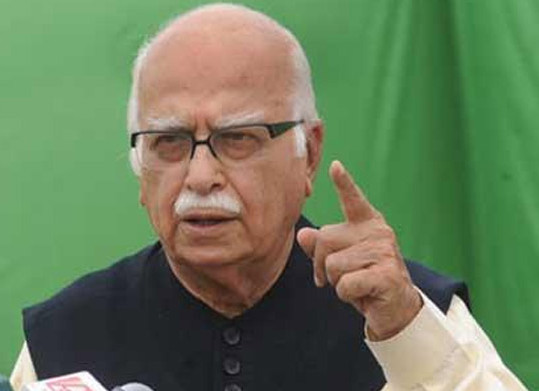
New Delhi– The Supreme Court on Wednesday revived the conspiracy charge in the Babri Masjid demolition case against BJP and VHP leaders including L.K. Advani and Murli Manohar Joshi, triggering calls for the resignation of Kalyan Singh and Uma Bharti.
After the court vedict, Prime Minister Narendra Modi held a meeting at his official residence with senior cabinet colleagues including Home Minister Rajnath Singh, Finance Minister Arun Jaitley, Information and Broadcasting Minister M. Venkaiah Naidu and Road and Transport Minister Nitin Gadkari where they are understood to have discussed the issue.
A senior party leader said that the several issues figured in the meeting including the situation in Jammu and Kashmir.
However, Jaitley had earlier indicated that the Bharatiya Janata Party (BJP) and the government would not act against any of the leaders. “This case is going on since 1993. Today, no new situation has arisen.”
Advani and Joshi were among the top contenders for the post of President after Pranab Mukherjee retires in July. Uma Bharti is a union minister and Kalyan Singh is the Rajasthan Governor.
Hours after the verdict, Joshi and Advani held a brief meeting. Later, the BJP core group led by party Chief Amit Shah also met to discuss the further strategy of the party.
Shah is learnt to have assured Advani and other leaders the party stands with them.
Sources said that Shah also convinced Uma Bharti to cancel her proposed Ayodhya visit, which she had announced earlier in the day.
All four along with Vinay Katiyar, Sadhvi Rithambara, Acharya Giriraj Kishore, Ashok Singhal and Vishnu Hari Dalmia were facing trial for making inflammatory speeches before the 16th-century mosque was razed in Uttar Pradesh’s Ayodhya town on December 6, 1992.
Giriraj Kishore and Singhal, who were key members of the Vishwa Hindu Parishad (VHP), have since died. Katiyar is a Rajya Sabha member of the BJP.
Restoring the conspiracy charge, Justice Pinaki Chandra Ghose and Justice Rohinton Fali Nariman transferred the trial from Rae Bareli to Lucknow.
Justice Nariman said since Kalyan Singh had constitutional immunity from prosecution, the trial court would proceed against him when he ceases to be Governor.
The verdict followed a Central Bureau of Investigation plea challenging the May 2010 Allahabad High Court order quashing the conspiracy charge against Advani and others.
The Congress demanded a speedy trial while the Communist Party of India (CPI) and the Indian Union Muslim League (IUML) sought action against Uma Bharti and Kalyan Singh.
“The law of the land has prevailed. We hope there will be a speedy trial and all the guilty will be punished and face the consequences,” Congress spokesperson Sanjay Jha told IANS.
“It is a known fact that the Babri demolition as a spontaneous reaction has been proven wrong and it was indeed a political conspiracy,” Jha said.
The CPI said Uma Bharti and Kalyan Singh should step down on moral grounds. The IUML said Kalyan Singh should not cling to technicalities by speaking of immunity, adding Uma Bharti too should quit.
RJD chief Lalu Prasad said Advani’s dream of becoming the President of India had now been dashed.
Blaming Prime Minister Narendra Modi for the twist in the case, he said: “Advani is now out of race for the President’s post.” He added that Advani was a “scapegoat” (bali ka bakra) in the demolition case.
Uma Bharti refused to resign, saying the charges of conspiracy had not yet been proved. She said there was no conspiracy behind the mosque razing.
Katiyar took a similar line. “Why would I resign? There is nothing in it that I should resign.”
On December 6, 1992, all these leaders were present in Ayodhya when hundreds of mostly VHP activists storied the three-domed Babri mosque and brought it down, triggering communal violence in the country.
The Supreme Court also said the trial court in Lucknow would frame additional charges against Advani and others and proceed against them.
It said there would be no de-novo trial and the trial court judge would not be transferred until the trial got over. The trial should end in two years, the top court said, without adjournments. (IANS)















